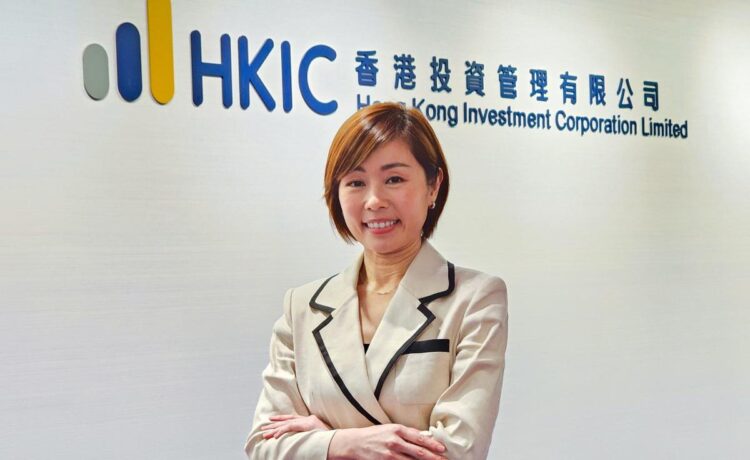Government-owned Hong Kong Investment Corporation (HKIC), which manages HK$62 billion (US$8 billion) of funds, will make its first batch of investment in start-ups this month as authorities seek to strengthen innovation and technology as a core pillar to provide sustainable economic development in the city.
“We will make our first batch of direct investment or co-investment this month in a number of start-ups in three major sectors – hard and core technology, biotechnologies, and new energy and green technologies,” said Clara Chan Ka-chai, CEO of HKIC, in her first interview after taking the role in October.
A potential candidate in the first batch of investments will be a home-grown unicorn Smartmore, an artificial intelligence (AI) player, according to a source familiar with the situation who declined to be named as the deal is private.
Do you have questions about the biggest topics and trends from around the world? Get the answers with SCMP Knowledge, our new platform of curated content with explainers, FAQs, analyses and infographics brought to you by our award-winning team.
HKIC will sign a strategy partnership agreement with Smartmore on Wednesday for developing the industry in the Greater Bay Area, according to the source.


Clara Chan Ka-chai, CEO of Hong Kong Investment Corp (HKIC) posted for photo in her office at Pacific Place One, Admiralty on June 5, 2024. Photo: Enoch Yiu alt=Clara Chan Ka-chai, CEO of Hong Kong Investment Corp (HKIC) posted for photo in her office at Pacific Place One, Admiralty on June 5, 2024. Photo: Enoch Yiu>
The HKIC, established in October 2022, manages four funds, including a HK$30 billion Co-Investment Fund set up to attract businesses to the city through investment in their companies. The other funds include the HK$32 billion Hong Kong Growth Portfolio, which includes a HK$5 billion Strategic Tech Fund and a HK$5 billion Greater Bay Area Investment Fund, whose focus is on investment opportunities in the development area that includes Hong Kong, Macau and nine mainland cities in China’s southern Guangdong province.
Chief Executive John Lee Ka-chiu announced in his 2022 Policy Address the establishment of the HKIC which would use the government’s reserves to finance the development of Hong Kong’s economy and industries.
HKIC will also be responsible for managing a separate fund to invest in start-ups for the applicants of the Capital Investment Entrant Scheme (CIES) launched by the government in March.
The CIES, commonly known as the investment migration scheme, offers a faster route to Hong Kong residency for people who invest at least HK$30 million in the stock market, bonds or non-residential properties.
“We will only invest in companies which have the potential to deliver a good return for our investment, while they must also help to leverage the capital for encouraging technology companies to use Hong Kong as their base of development,” said Chan but declined to name the investment targets due to confidentiality reasons.
Since taking up her role in October 2023, Chan and her team have met with start-ups and potential partners, ranging from newly set up start-ups to listed companies. The HKIC targets to raise its staff strength to 50 staff as the transaction pipeline builds up.
“HKIC will complete more deals every quarter, while we will also build partnerships with major players to establish the ecosystem here and promote more technology firms to use Hong Kong as a base for their development,” she added.
HKIC’s board of directors is chaired by Financial Secretary Paul Chan Mo-po and the appointment of Chan, a former Hong Kong Monetary executive director, came after a global search.
Chan expects the investment for the CIES scheme to focus on round B or C of start-up fundraising. Start-ups have multiple stages of funding – seed funding is the earliest funding stage which is sourced from angel investors, friends, family and the original company founders. This is followed by subsequent funding stages called series A, series B, series C and so on.
“We found many start-ups have no difficulties getting the seed money or so-called round A of fundraising while they also have no problem getting funding when they are preparing to go public. But many of them have difficulties getting funding in between, so we would like to fill the gap,” she said.
Besides investment, HKIC will also be responsible for arranging events to promote use of technology, including a major technology conference in September and an international sovereign funds round table in January next year.
In June, it will launch a programme to introduce an AI large language model – a programme capable of recognising and generating text among other tasks.
Chan emphasised that HKIC will not act as a rescue fund to support the stock market.
“HKIC is not responsible for supporting the market slump. However, if there are investment opportunities arising from the low valuation of well-listed companies, we will also consider investing in them,” she said.
This article originally appeared in the South China Morning Post (SCMP), the most authoritative voice reporting on China and Asia for more than a century. For more SCMP stories, please explore the SCMP app or visit the SCMP’s Facebook and Twitter pages. Copyright © 2024 South China Morning Post Publishers Ltd. All rights reserved.
Copyright (c) 2024. South China Morning Post Publishers Ltd. All rights reserved.















